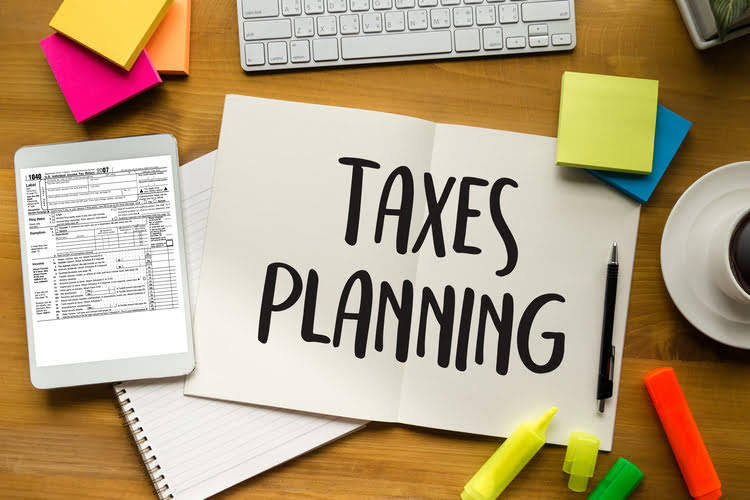
Generally, the more creditworthy your business, the more likely you are to get a favorable rate when approved for your card. A business card can help you meet your fixed expenses, such as rent and utilities, and offers a way to cover fluctuations in cash flow or cyclical needs — such as snow supplies or other winter demands. When used responsibly, a business credit card can be a useful addition to your overall financial plan. Business owners may find several key benefits to using a business credit card.
Business credit can be generated from businesses that are registered as separate legal entities, such as a limited liability company (LLC) or a corporation. The business functions as a separate legal entity and is identified by its own employer identification number (EIN), which works like a Social Security number when acquiring loans and submitting tax returns. For example, if your business needs more working capital to run its operations, you may consider applying for a cash flow loan.
Business credit card benefits
There are a few things to consider before selecting a business credit card. It’s also helpful to check minimum opening deposit requirements, as well as fees and other account features, when deciding where to bank. Having good credit for your business provides many benefits, such as a higher chance of getting approved for loans, lower interest rates, and the ability to negotiate contracts.
- Any size business, from a sole proprietorship to a corporation, can qualify.
- Many of the federal rules that govern credit cards issued to individual consumers don’t apply to cards used for business purposes, such as corporate cards.
- Your time in business, annual revenues, and the industry that you’re in may all influence your ability to get financing.
- As mentioned above, you’ll need a DUNS number to build a business credit profile with Dun & Bradstreet.
- When choosing a credit card, look for a rewards program that works for your business structure.
That said, some business cards — like the Chase Ink Business Premier℠ Credit Card and Capital One Spark Cash Plus — are actually charge cards, which typically require payment in full each month. The main upside to charge cards is that they generally have no set credit limit. They’re perhaps not the best choice for newer businesses with high startup costs that owners are looking to pay for over time, however, or for those with unpredictable income. But the lack of a spending limit can make charge cards ideal for established businesses with big monthly expenses that are factored into the business’s budget. With Chase for Business you’ll receive guidance from a team of business professionals who specialize in helping improve cash flow, providing credit solutions, and managing payroll.
Company Policies for Corporate Credit Cards
Our suite of security features can help you protect your info, money and give you peace of mind. See how we're dedicated to helping protect you, your business credit card definition accounts and your loved ones from financial abuse. Also, learn about the common tricks scammers are using to help you stay one step ahead of them.
It also offers a revolving line of credit with which to pay for unexpected expenses or large purchases, and can help cover bills without the need for immediate cash on hand. If you need to finance large expenses that you probably can’t pay back in one statement period, consider applying for a business loan or business line of credit instead. Those products are harder to qualify for than business credit cards, but they usually come with lower interest rates. Corporate credit cards are designed to meet the needs of established companies—typically those with at least $4 million in annual revenues, 15 or more card users, and projected charges of $250,000 or more each year. While most businesses, including sole proprietorships, can get a small-business credit card, corporate cards (as the name implies) are reserved for corporations.
Chase Security Center
When compared to personal cards, business credit cards typically come with higher credit limits, greater rewards potential, employee cards and tools to manage and keep track of business spending. A business credit card is similar to the personal credit https://www.bookstime.com/ card you keep in your wallet, only it’s intended for use by a business and can help build a company’s credit profile for future borrowing. Business credit cards come with expense monitoring and other tools meant to help manage business spending.

Having a separate bank account for your business adds legitimacy to your venture. It also makes it easier to keep business expenses separate, which can be helpful at tax time. As a result, you should keep an eye on your business credit reports and other factors that can influence your many different business credit scores. Applying for a business credit card has a few different benefits that you may want to take advantage of. Firstly, the lender will likely report your payments to the credit bureaus, which may help build your business credit. Now that you know what a business credit card is, you can decide whether it’s right for your company.
Whether you’re a sole proprietor or a company owner with hundreds of employees, the best business credit cards can simplify transactions and make it easier to access funds for your enterprise. While the specific features of every business card are different, here’s what you need to know to determine if one is right for you. In addition, when you apply for a business credit card the issuer may look into both your business and personal credit history.